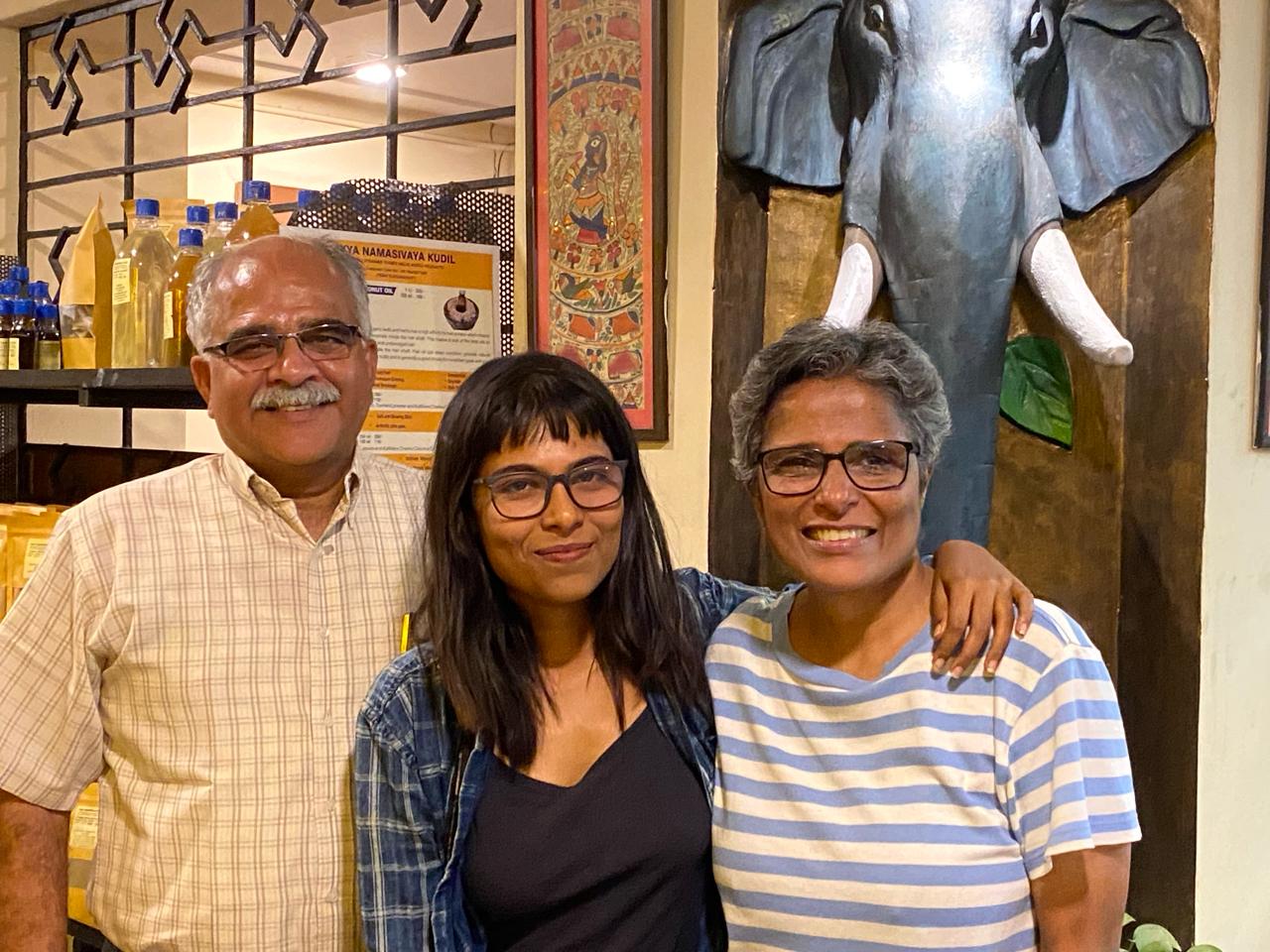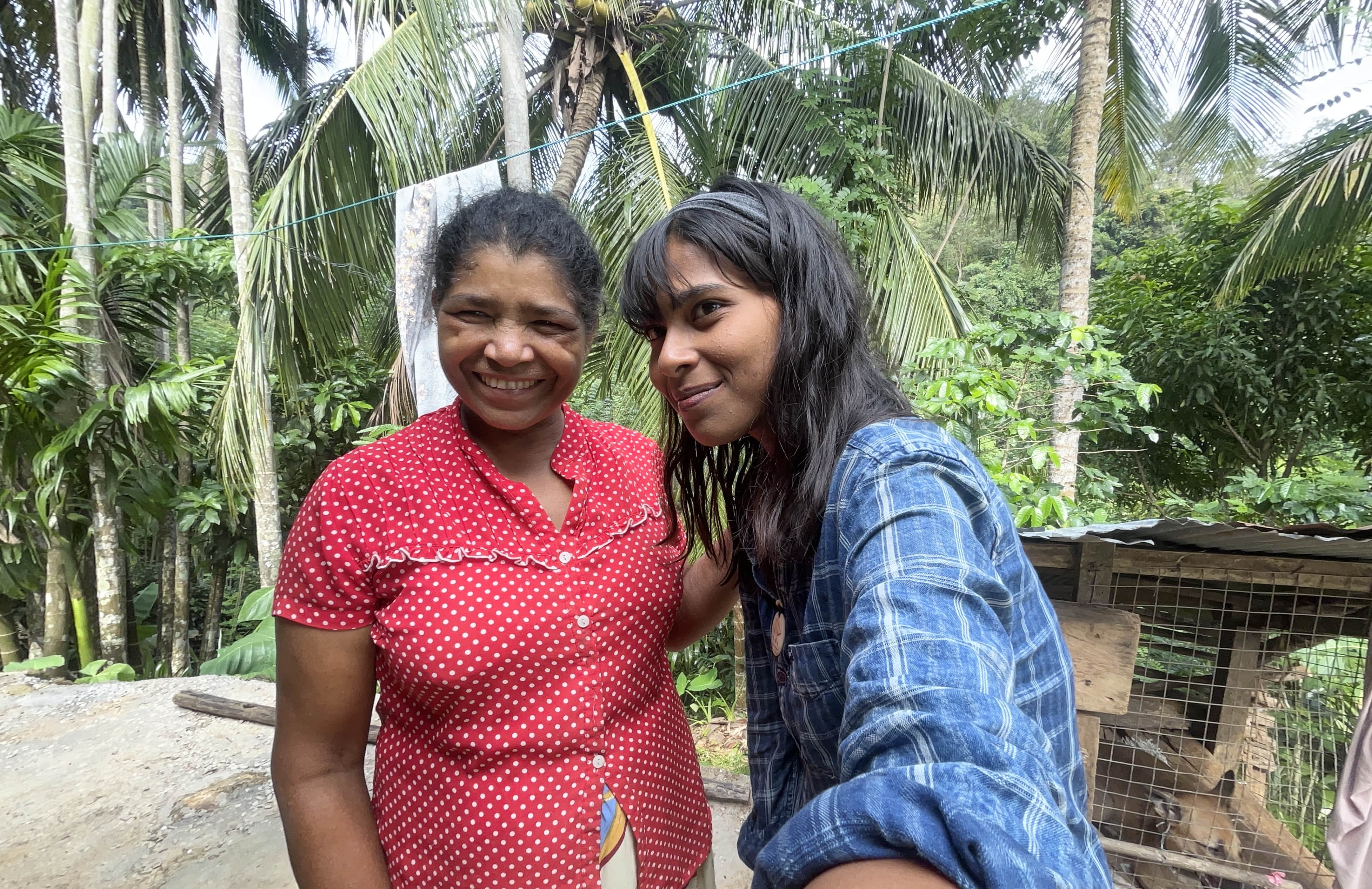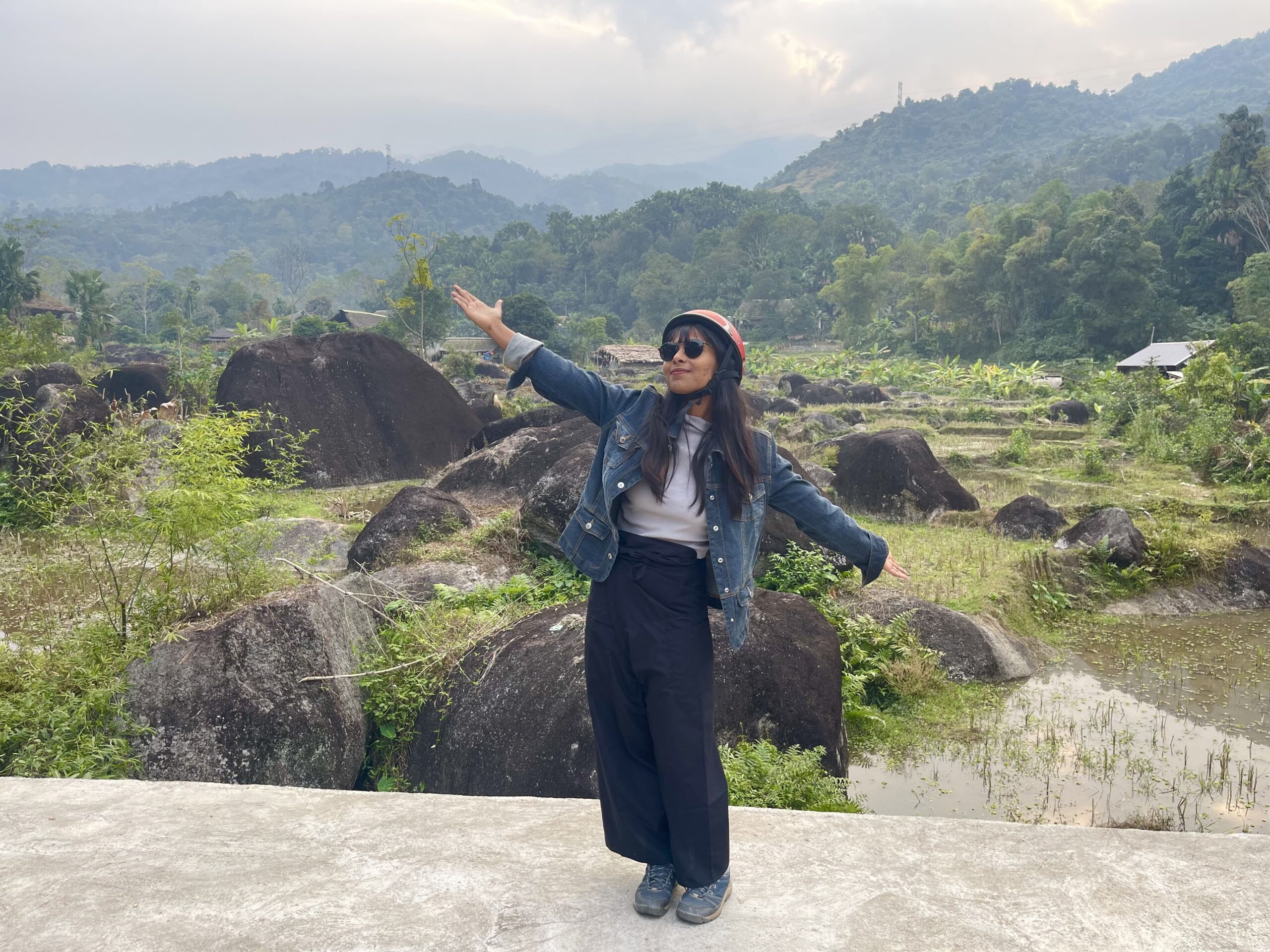Dr. Mini Vasudevan, a Tamil woman from Coimbatore, started a non-profit initiative named Humane Animal Society (HAS) in 2006 to bring animal welfare into a collective space.
‘We had a male six-month-old rescued puppy named Rajiv. A road traffic accident case. He had a severe trauma to his head. His head was swallowed up, so we suspected some kind of internal bleeding.’ Said the senior veterinarian, Dr. Jisna Jamal. ‘When we did the neurological examination, we received the least possible response. We were 90% sure he wouldn’t survive.’
But he did. For 10 days, he was under constant fluid therapy. Over the course of 6 months, his condition improved on a ladder; from a timid and frightened puppy unable to lift his head to eating solid food, in baby steps. ‘The day we decided to sterilize him, we saw some loose stool inside his cage. Loose motion, diarrhoea, dehydration… We are suspecting a cross-infection. Blood Value is also very very low.’
HAS And Their Initiatives Towards Animal Welfare

In a disparate social set-up where most strays live through neglect and exploitation, Humane Animal Society (HAS) made a commitment to a warm-hearted welfare space in Coimbatore in Tamil Nadu for the animals to share untainted love and compassion, since April 2006, and stuck to it.
HAS rescues stray animals counting scars in distress and disregard while spending days in invisible boxes. Abandoned by once-a-caregiver or after getting hit by a reckless driver’s misdirections, the innocent victims are often left to their own predicament. Not only road-accident cases, HAS works in rehabilitation, adoption, anti-rabies vaccinations, ABC (Animal Birth Control), and awareness programmes in schools and colleges. And their efforts have impacted 65000 animals in Coimbatore so far.
Overpopulation of strays on the streets often sows the contingency of malignant diseases, budding starvation, and even euthanasia. Spaying and neutering promotes a healthier and more sustainable ecological balance that safeguards both human and animal health, eventually preventing more unwanted births likely to get abandoned or neglected.

Vaccination can prevent contagious and potentially deadly diseases like rabies, distemper, parvovirus, and canine hepatitis. ‘When we vaccinate the strays, we cut down on the risks of transmission to humans and other animals’, as believed by Humane Animal Society.
The courage they face in pain and vain, lying on the operation table, and counting on the veterinarians to show them the way, radiates through a congregated transformation, inside and outside. Both for them and HAS.
John, pushing his gloves up the wrist, is bringing a special-care dog to the table for Dr. Shyam to tie the bandage around. It is Jeeva’s off-day, but on a sunny day, he is busy taking out the new rescues from the mini-truck to place them inside the canals. A tedious job that demands a higher level of patience and concentration. The dogs, when suddenly rescued from the streets, tend to be confused and aggressive. The dog-catchers use a long-poled gripper to handle the aggressive ones. Jibha’s love for animals refuses the use of a gripper. He manages every dog by bare hand, and he has already been bitten more than 100 times. Yet he won’t use the pole.
Stories of Suffering And Beyond

Dr. Jisna tells me about Timon. ‘He was a street dog, inflicted with TVC (Transmissible Venereal Tumor), a sexually transmitted disease that only spreads through sexual intercourse. After 2-3 rounds of chemotherapy, Timon started regressing with high temperature and low Blood Counts. We did a PCR to confirm that he had a Tick Fever.’ Jisna was telling me how sometimes one disease may actually lead to other variants, or show other symptoms.
‘We stopped Chemotherapy, and started Triple Therapy. For 21 days, we did all the treatment, happy to see his health recuperating. So we shifted him back to the canal.’ But in no less than a week, his symptoms emerged again. And this time he started showing neurological imbalances also. Now poor Timon is fighting severe incorrelation and deteriorated eyesight. He walks round and round in circles, gets stuck up against a wall, and cries out in panic.
It goes beyond saying that the exceptional tenacity of these animals weaves facets of inspiration in animal welfare. The courage they face in pain and vain, lying on the operation table, and counting on the veterinarians to show them the way, radiates through a congregated transformation, inside and outside. Both for them and HAS.

And more often than not, HAS stumbles upon medical conditions that require special surgeries for the rescued animals, including many scenarios of life-threatening mammary tumors, cancerous tumors, neglected hernias, and adamant head injuries.
While Vimala underwent a traumatic accident that left her right front limb injured, Hachi, their 12-year-old senior dog, sparked concerns of pyometra with symptoms of weakness, appetite loss, and anaemia. Vivek shares the stories of these vital moments; the observations, decisions, and moreover, actions in a loop that literally and figuratively, changed the trajectory of these precious lives through animal welfare.
Also read – Travel Meaningfully with These Volunteering Opportunities in India
Vivek Takes You Around the Rescue Centre
Vivek Paul was the Communications Specialist for HAS for two years, until he decided to take up the role of ‘Patient-Welfare Manager’ three years back. The Patient-Welfare team is responsible for recording the rescue-arrivals, keeping a digital testimony of where the animal was caught, what treatment protocol and preventive measures have been implemented, and the nutrients allotted. ‘It is illegal for the government body or any individual to translocate dogs.’

Vivek shares his own beginnings. ‘There used to be a short ‘Pet Pals’ section in The Hindu. It caught my attention, but I never called them. I didn’t know it was from HAS. After I finished college, I was looking for opportunities as a photographer. I saw that there was a vacancy for a Communication Coordinator at HAS.’ Vivek takes me on a tour around the 1.25 acres of land in Seeranaickenpalayam where many canals and separate sections have been curated for differently-needed dogs.
‘There should be no shelters, ideally. I hope someday I don’t have to run an animal shelter.’ Mini said.
‘The first nine canals are our ABC (Animal Birth Control) canals. ABC Welfare Protocol, on average, would be a week.’ A team of dog-catchers rushes to a particular area in Coimbatore with butterfly nets. They note down the street number, colour, and gender of the dogs, before they bring them in. After a basic check-up, on the second day, the vet does the surgery. For males, the surgery is done externally; the testicles are removed. For females, it is done internally; where the uterus is cut off. Irrespective of the gender, they put an ear-notch on the dog, so that they can identify if the dog has been sterilized or not from a distance. ‘If the protocol is followed, 99% of the time they are released back to the streets after three days of post-operative care.’

Vivek moves to the next section; canals full of dogs barking, waiting for an answer. ‘These are our ID Canals (Impatient Dogs). These are designed for those who need a space to rest. Some dogs are very shy. They eat only when kept separately.’
The third section has another set of ID Canals, a hydro pool, and a specially-made ground with cocopeat to create a soft surface for the paralyzed dogs. ‘Previously it was one big enclosure. Before we had a substantial number of paralyzed dogs. Now since the number has reduced, we have dedicated the other half to the dogs in the process of recovery after surgery.’
The chances of paralyzed dogs getting adopted are almost zero. They deserve 24*7 care. Some paralyzed dogs can’t poop by themselves; some get drag wounds from continuous dragging. It matters how much pressure they put into that particular point, so the surface has to be light-shifting.

‘The adoption rate of three-legged dogs (tripods) has increased. Now people are more forthcoming to adopting the special-need dogs. Even we had a dog who had lost vision in both eyes. A family adopted him.’
Also read – Volunteer Tourism And How It Can Shift Your Travel Experiences
Animal Welfare: Mini Shows That Everything Can Be Done with Efforts
But how did all this start? Mini Vasudevan, a Tamil woman from Coimbatore, worked in the US as a telecommunications engineer for 13 years. In 2004, Mini and her husband Madhu Ganesh returned to India, and deepened their roots in her native place Coimbatore. However, the street animals living in neglected and defiled states in her colony shifted something in her; diverted her path to animal welfare. Mini is someone who became a vegetarian at age 11, after she witnessed a chicken brutally slaughtered on a farm. Now she is a vegan.

Mini often volunteered at animal welfare shelters; and in one such volunteering initiative by Coimbatore Municipal Corporation (CMC), Mini got the wave of inspiration for starting HAS. That ‘wave’ was not breezy; in fact, appalling. In that Corporation Animal Birth Control Campaign, animals were stalked into cages, and left to sit in their own urine and feces, with no consideration. Mini took pictures and sent them to Meneka Gandhi, an animal activist and politician. Meneka wrote back to Mini, ‘If you want to change something, you have to work at it yourself.’ Mini recalls how that one sentence rotated around her perception and in 2006, she began building her own blocks towards the welfare of animals. (Meneka reprimanded CMC though, and asked them to cooperate with Mini).
‘There should be no shelters, ideally. I hope someday I don’t have to run an animal shelter.’ Mini said, with Archie, a fluffy senior cat, on her lap. Apart from the rescue center, HAS provides daily care to 100 residential dogs, 8 cats, 2 cows, and one horse at a village sanctuary on the outskirts.
Mini was honored with the ‘Nari Shakti Award’ (‘Woman Power Award’), the highest honorary award for women in India, presented by the Prime Minister.
To volunteer with HAS (they provide food and accommodation), or to donate, adopt, foster a stray animal or support their welfare initiatives, connect directly through their website or Instagram.
In what ways are you contributing to animal welfare in your surroundings?
Support my solo adventures around the globe by joining the Patreon community!
Live the Adventure
Get weekly articles delivered to your doorstep and stay up-to-date with my new travel stories.





Leave a Reply